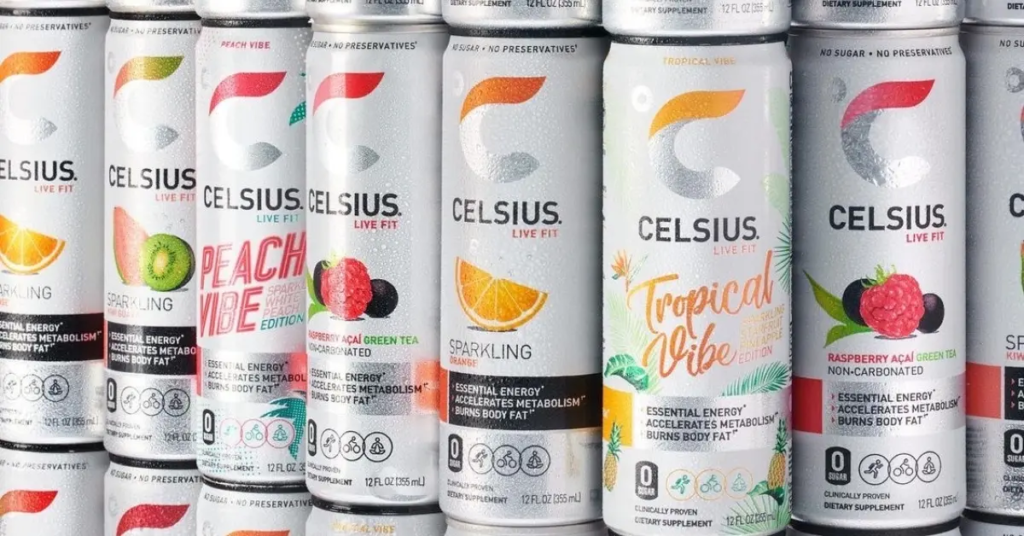Introduction to Celsius Energy Drink
Celsius Energy Drink has emerged as a popular choice among fitness why is celsius bad for you enthusiasts and health-conscious consumers in recent years. Marketed primarily as a fitness drink, Celsius promises to boost energy levels and enhance workout performance while promoting overall well-being. With a unique blend of ingredients, Celsius positions itself in a saturated market that is increasingly leaning towards more natural and functional beverages.
The key ingredients in Celsius Energy why is celsius bad for you Drink include caffeine derived from natural sources such as guarana and green tea extract. These components are combined with other nutrients, including vitamins and minerals, aimed at improving hydration, metabolism, and energy expenditure. Unlike many traditional why is celsius bad for you energy drinks that rely heavily on sugar and artificial additives, Celsius is marketed as being free from artificial preservatives and sweeteners, appealing to consumers looking for healthier alternatives.
This focus on natural ingredients, coupled with the drink’s zero-calorie formulation, has contributed to its popularity among those who are mindful of their caloric intake and seek to avoid unwanted sugar consumption. However, it is important to recognize that while it may seem like a suitable option for many, there are still underlying concerns regarding its consumption. Questions regarding the potential impact of elevated caffeine levels and the overall effects of energy-boosting ingredients have led to discussions about the safety and suitability of Celsius for various demographics.
Before diving into the risks and side effects of Celsius, it is essential to why is celsius bad for you consider how the drink fits into the broader context of energy beverages, especially as discussions about why Celsius may be bad for you continue to surface. Overall, understanding its ingredients and intended purpose will provide a foundation for exploring the concerns surrounding Celsius and its consumption.
Potential Health Risks of Celsius
Celsius energy drinks have gained popularity as a means to boost energy and enhance athletic performance. However, it is crucial to understand the potential health risks associated with consuming these beverages. One of the primary concerns is the high caffeine content present in these drinks. A typical serving can contain around 200 mg of caffeine, which significantly exceeds the recommended daily limits for some individuals. Such a high intake can lead to various adverse effects, particularly for those who are sensitive to caffeine.
Common side effects of excessive caffeine consumption include jitters, why is celsius bad for you increased heart rate, anxiety, and insomnia. The stimulating properties of caffeine can lead to heightened nervousness and restlessness, making it challenging for individuals to maintain focus or sleep adequately. For those with pre-existing anxiety disorders or heart conditions, the consumption of Celsius can exacerbate symptoms and lead to serious health implications. The combination of caffeine with other ingredients, such as taurine and guarana, can also magnify these effects and pose an added risk.
Moreover, the impact of Celsius on cardiovascular health is concerning. High doses of caffeine can increase heart rate and blood pressure, potentially leading to a higher risk of heart-related issues, especially in individuals with underlying conditions. Consequently, people who suffer from hypertension or have a history of cardiac problems should exercise caution when considering energy drinks like Celsius.
In addition to the effects of caffeine alone, the synergistic interaction of multiple ingredients found in these energy drinks can lead to unpredictable health outcomes. While Celsius markets itself as a healthier alternative to traditional energy drinks, avoiding potential pitfalls associated with its consumption is vital. Individuals should remain vigilant and consult with healthcare why is celsius bad for you professionals when incorporating such products into their diets, especially if they have any pre-existing health conditions.
Addiction and Dependence on Energy Drinks

The regular consumption of energy drinks, including Celsius, raises significant concerns regarding potential addiction and dependence. Central to this issue is the caffeine content found in these beverages, which is known to elicit physical and psychological effects that can lead to established patterns of use. When consumed frequently, individuals may begin to experience tolerance; this means they require increasing amounts of caffeine to achieve the desired stimulating effects. Over time, this can create a cycle of dependency, where the absence of energy drinks results in withdrawal symptoms such as fatigue, irritability, and difficulty concentrating.
Research indicates that the brain can adapt to the presence of caffeine, modifying neurotransmitter function which can contribute to a sense of normalcy only when energy drinks are consumed. This adaptation can negatively influence a person’s daily functioning, why is celsius bad for you raising questions about their ability to navigate regular activities without the aid of such beverages. Consequently, the question “why is Celsius bad for you?” extends beyond the physical components of the drink and delves into the behavioral patterns associated with its consumption.
Moreover, social and psychological factors play a significant role in energy drink addiction. In many cases, individuals are influenced by peer norms and cultural pressures that promote high energy and productivity. The marketing of products like Celsius often emphasizes performance and energy enhancement, which can disguise the potential risks of addiction and dependence. As users gravitate towards coffee and energy drinks as their primary sources of energy, these habits can cultivate a reliance that is challenging to break. Ultimately, understanding the implications of regular consumption can illuminate why it is crucial to approach energy drinks with caution.
Alternatives to Celsius and Healthier Choices
As consumers become increasingly aware of the potential health risks associated with energy drinks like Celsius, many are seeking healthier alternatives that can still provide an energy boost or enhance hydration. Transitioning away from Celsius does not need to sacrifice the vitality one may seek from a beverage. Instead, exploring more nourishing options can lead to improved energy levels without the adverse effects linked to high-caffeine products.
One excellent alternative to consider is natural fruit juices, why is celsius bad for you particularly those that are fresh-pressed and devoid of added sugars. Juices such as orange, apple, or beet provide vital vitamins and minerals along with hydration. They also contain natural sugars that can offer a steadier energy release compared to the abrupt spikes often associated with energy drinks. Furthermore, incorporating whole fruits can evoke similar benefits, as they provide fiber and additional nutrients.
Herbal teas represent another viable option for those looking to replace Celsius. Many herbal teas, including ginger or peppermint, not only provide hydration but can also have energizing effects. Some herbal blends incorporate adaptogenic herbs like ashwagandha or rhodiola, which are reputed to balance energy levels and enhance resilience to stress, contributing to overall well-being.
Electrolyte-infused waters have gained popularity as well, offering a refreshing and hydrating solution without added calories or artificial ingredients. These beverages typically contain essential electrolytes, such as sodium and potassium, which can help maintain hydration and support optimal physical performance. By consuming these healthier alternatives, why is celsius bad for you individuals can ensure that their nutritional needs are met, thereby sustaining energy levels effectively while avoiding the concerning side effects associated with high-caffeine drinks like Celsius.

